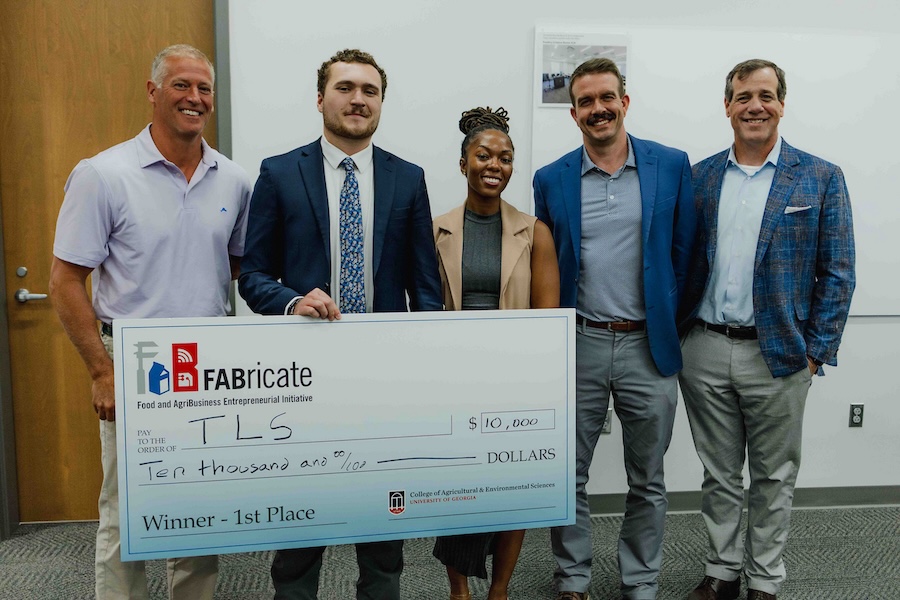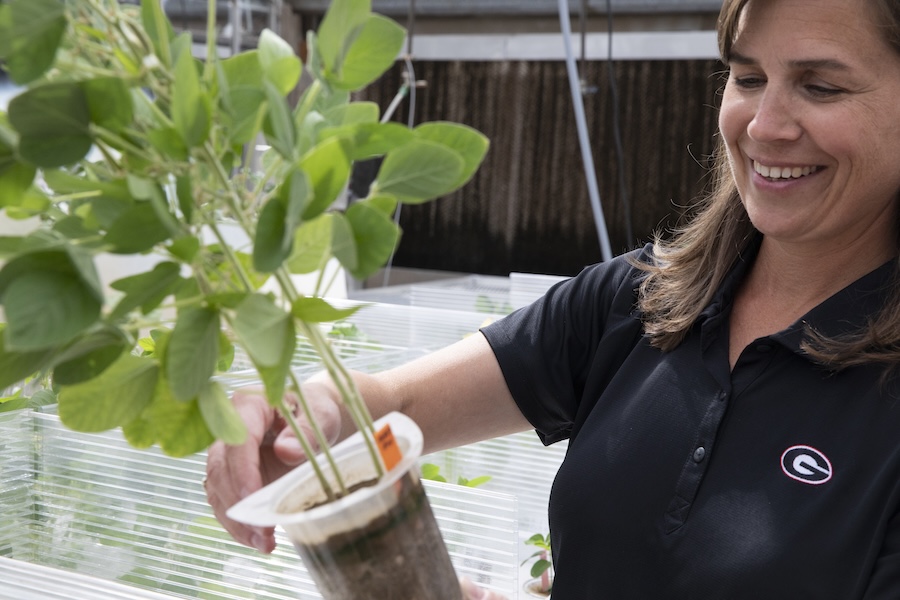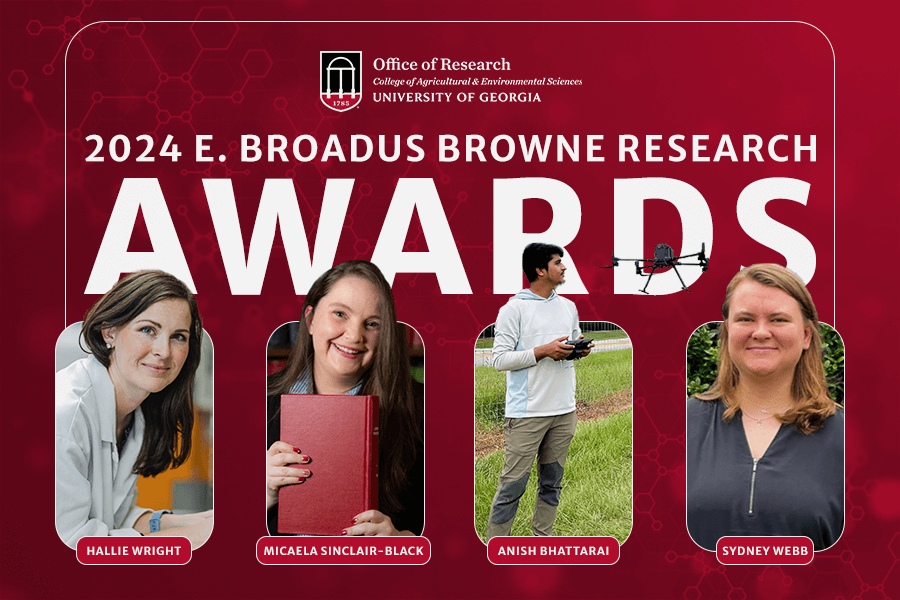
Two doctoral students and two master’s students in the University of Georgia’s College of Agricultural and Environmental Sciences (CAES) were recently honored with awards for outstanding research after placing in the 2024 E. Broadus Browne Research Competition.
In recognition of former Georgia Agricultural Experiment Station Director Edmund Broadus Browne, the annual competition highlights some of the best graduate research from departments within the college and challenges contestants with an oral presentation.
“The E. Broadus Browne Research Awards recognize outstanding graduate students in both Ph.D. and M.S. programs based on the creativity of their research and their communication skills,” said Harshavardhan Thippareddi, the college’s associate dean for research. “Graduate students are our next-generation scientists and teachers. In addition to conducting outstanding research, they need to be able to communicate their research to our stakeholders as well as a lay audience.”
Award-winning doctoral researchers
Hallie Wright earned first place in the doctoral category, representing the Institute of Plant Breeding, Genetics and Genomics (IPBGG) with her research on identifying genetic components of disease resistance in finger millet.
“I grew up in rural Indiana and I always knew that I wanted to be involved in agriculture,” said Wright. “When I was in high school, I got my first exposure to genetics, and it made me excited about combining my newfound interest in genetics with agriculture. I became passionate about the idea that we can use plant genetics to generate solutions to solve global food insecurity.”
Wright’s study, which focuses on a devastating disease known as blast, is centered on protecting Georgia’s agricultural industry amid the effects of climate change. During peak season, blast can result in up to 90% yield loss, affecting farmers around the globe.
Through her work in the Devos Lab, Wright has identified specific genes in finger millet that are resistant to the disease and can hopefully be applied to other crops.
“Although I’m focusing on a specific crop grown in a specific region of the world, the results and the research are also translatable to other crops that people are more used to eating,” Wright said. “I’m very honored and humbled to have won.”
Representing the Department of Poultry Science, Micaela Sinclair-Black earned second place with a presentation on the regulation of calcium and phosphorus homeostasis in laying hens.
Coming to UGA from Johannesburg, South Africa, Sinclair-Black grew up with family members in the agricultural industry, specifically working with laying hens. After completing her bachelor’s and master’s degrees at the University of Pretoria, she decided to leave the nest for her doctorate.
“My dream in life was to travel and complete my Ph.D.,” said Sinclair-Black. “My mentor back home connected me with Roselina Angel and that led me to an (associate) professor here at UGA, Dr. Laura Ellestad. And in 2020 I jumped on a plane in the middle of COVID-19 and came to the United States.”
In her doctoral program, Sinclair-Black has been focusing on how the age and stage of the egg-laying cycle can influence certain factors in laying hens. After success during the E. Broadus Brown competition, she is motivated to broaden the reach of poultry research and knowledge in scientific communities.
“I feel like a lot of the time, in-depth poultry research doesn’t get as much exposure as it should,” said Sinclair-Black. “This competition is a platform where we can get up and show how much good research is going on in the department. It pushes you to refine your communication skills and it’s very competitive.”
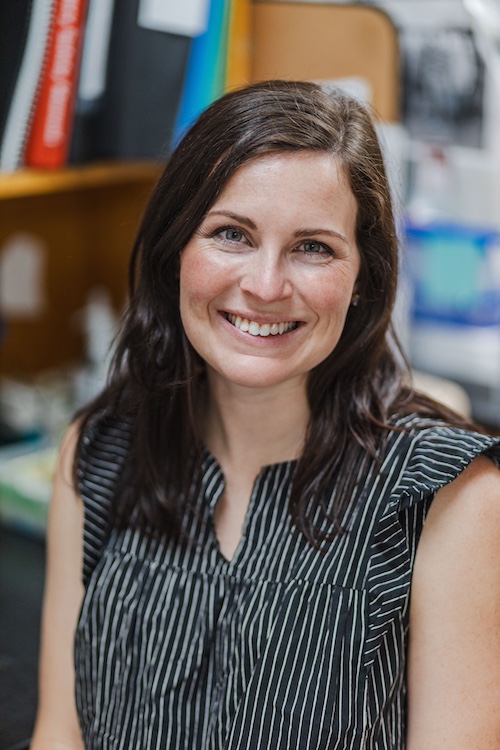
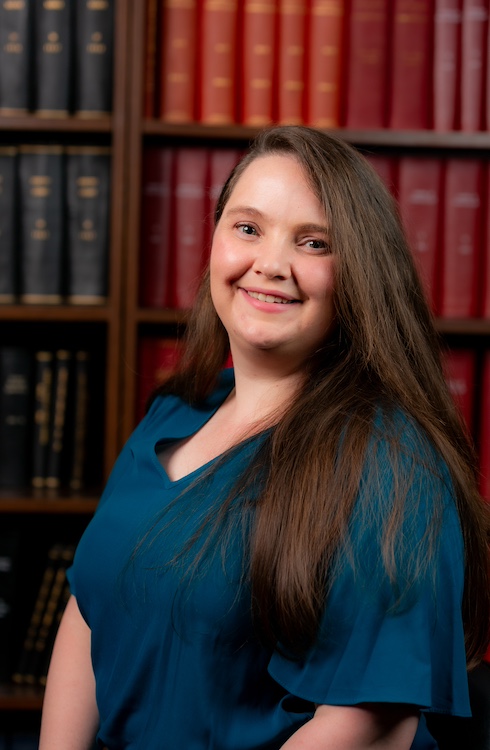
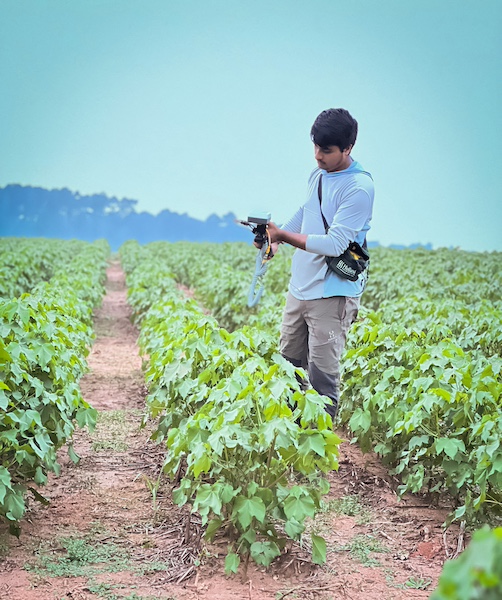
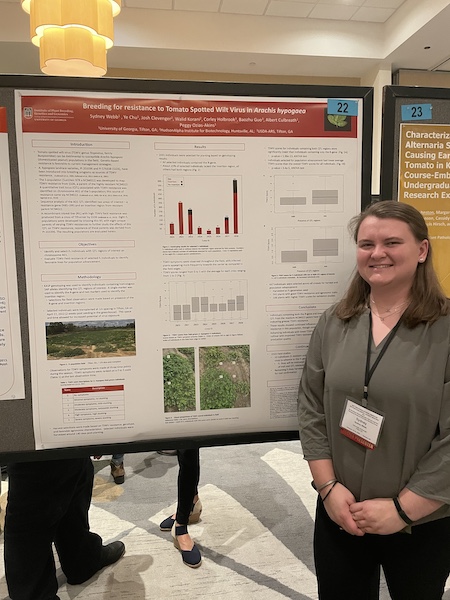
Award-winning master's researchers
Presenting findings on sensor-based nitrogen management in cotton, one of Georgia’s premier crops, Anish Bhattarai earned the top prize in the master’s category for his work in crop and soil sciences.
“Seeing my parents do agricultural stuff from the beginning gave me a great background when I began pursuing my education,” said Bhattarai, a native of Nepal. “What brought me to UGA were all the resources in precision ag. There are a lot of resources and farms that benefit students conducting research in many different locations.”
Knowing how important nitrogen usage is in plant growth, Bhattarai is working to better communicate his research to help farmers understand the intricacies of nitrogen and nutrition management.
“With my research, I want to find a balance between usage of the material and methods of application,” said Bhattarai. “Here in the United States, a lot of farmers have big farms, so we want to be able to identify specific needs, rather than applying a blanket rate, to help lower the costs and provide more usage for commercial farmers.”
Sydney Webb, representing IPBGG, earned second-place honors for her research to improve genetic resistance to tomato-spotted wilt virus in cultivated peanut.
“In North Carolina, I grew up in agriculture and always loved science at school,” said Webb. “Being in this competition pushed me to be able to explain my research in a general and understandable way, not just to people in my lab and those who understand plant breeding. It’s important for us as researchers to be able to do that.”
With 53% of U.S. peanut production occurring in Georgia, according to the USDA, Webb’s research is invaluable to identifying ways to protect crops and maintain yields.
“Being able to have that impact and having, years down the road, (peanut) varieties produced from my research that can help farmers in their field is something I’m looking forward to,” said Webb. “I’m excited to take what I do in the lab and the field and put these resources into the hands of farmers.”
Celebrating exceptional CAES students
Graduate students from the college's nine academic departments and institutes like IPBGG are nominated by the graduate coordinator and department head to represent their department in the competition. This provides immense support in their preparation.
“These awards are unique opportunities for CAES to recognize our next-generation scientists and prepare them for outstanding careers after graduation,” said Thippareddi. “We are proud of each of the competitors as they represent their individual departments from among the nine in our college.”
More about the E. Broadus Browne Research Awards
The E. Broadus Browne Research Awards were established following Browne's death in 1987 and have now been presented to graduate students for 19 consecutive years.
The first-place doctoral award recipient receives $2,000 and up to $2,500 in travel funding to attend a professional meeting, and the first-place master’s award recipient receives $1,000 and up to $2,500 in travel funding. Second place in each category is awarded $1,000 and $500, respectively.
To learn more about the awards and to view previous winners, visit caes.uga.edu/research.





